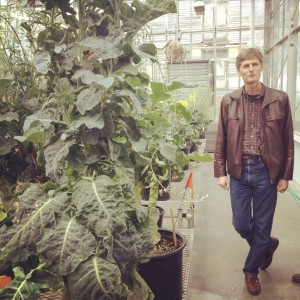
Maine’s indigenous plants help economy, Native Americans [Cornell Chronicle 2013/07/11] – Michelle Baumflek, Ph.D. student in the field of natural resources, recently contributed to a U.S. Department of Agriculture report cataloging some of the 120 wild plant and fungus species gathered in the St. John River watershed of northern Maine. She works with two Native American tribes in northern Maine who depend on local plants as part of their livelihoods. Her goal is to better understand how indigenous tribes steward plants that are important to them. This enthobotanical research encompasses traditional knowledge, plant use, health sovereignty and cultural identity.
Social media to help farmers deal with climate change [Cornell Chronicle 2013/07/11] – Whether farmers believe in climate change or not – 66 percent do – their actions show that they are adapting to global warming, according to panelists at a July 8 discussion on campus. “Farmers are already being affected by the changing climate, and the pace of change is likely to accelerate in the future,” said panelist Bill Hohenstein, director of the U.S. Department of Agriculture’s (USDA) Climate Change Program Office. “Agriculture is an important contributor to climate change as a source of greenhouse gases, but it is also one of the sectors that is most affected by climate change.”


